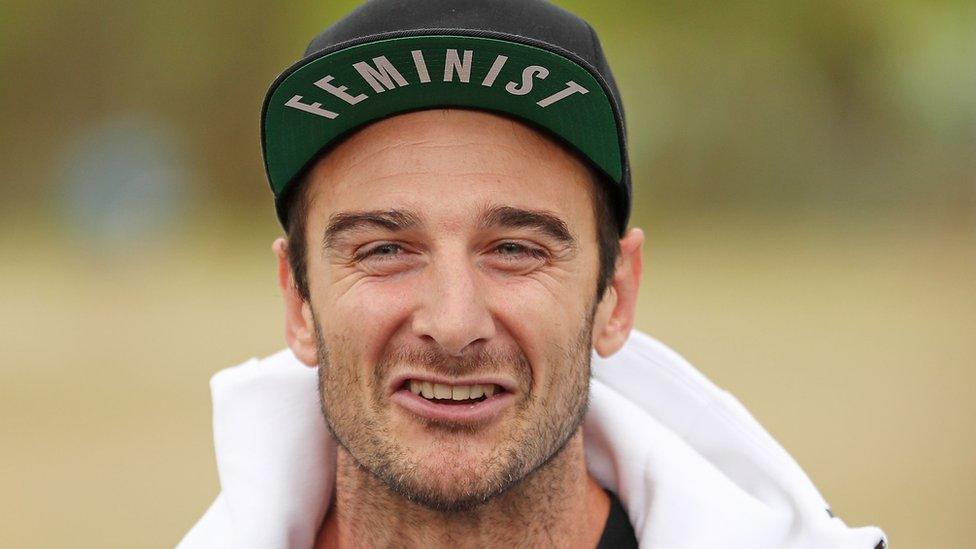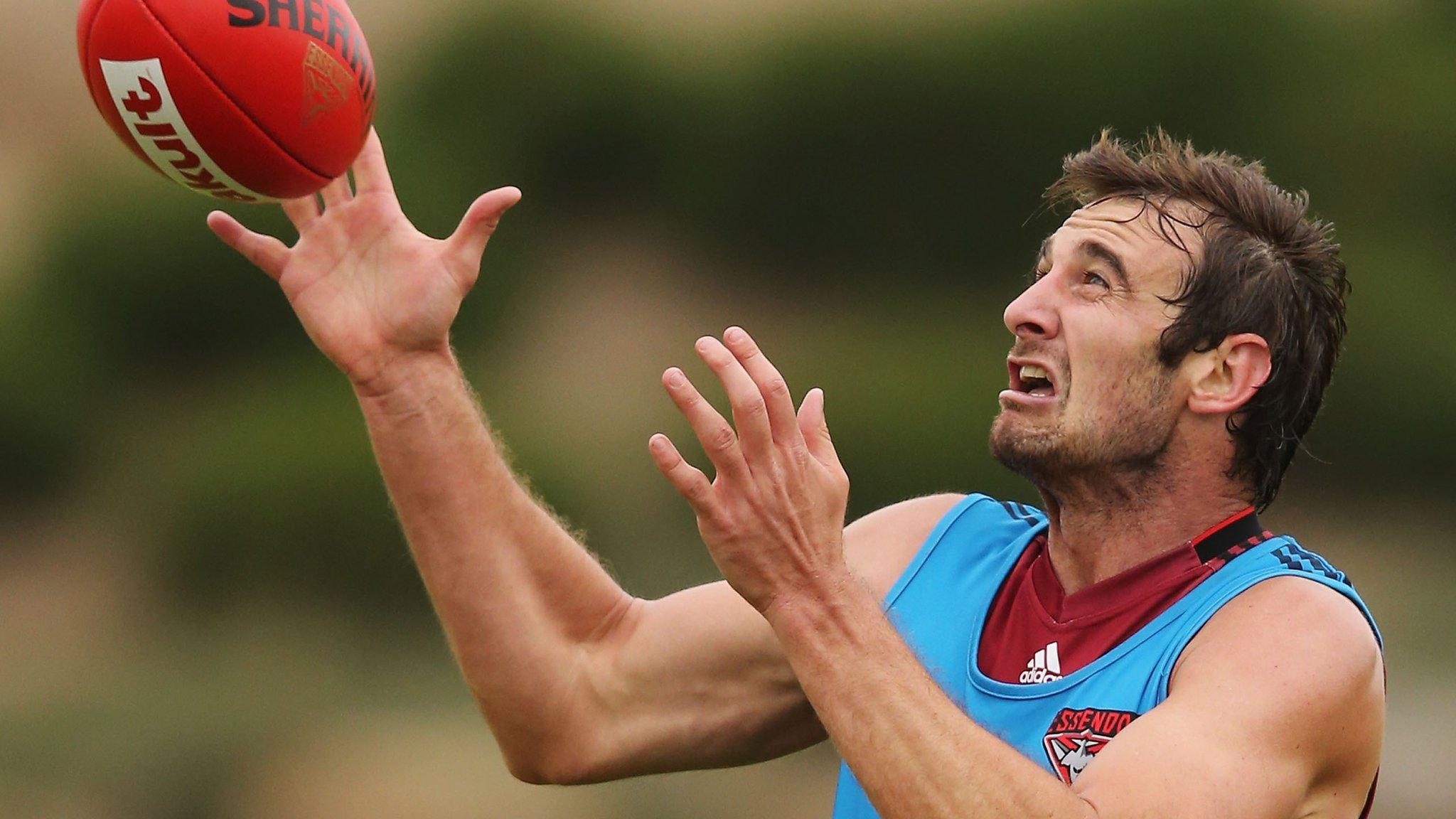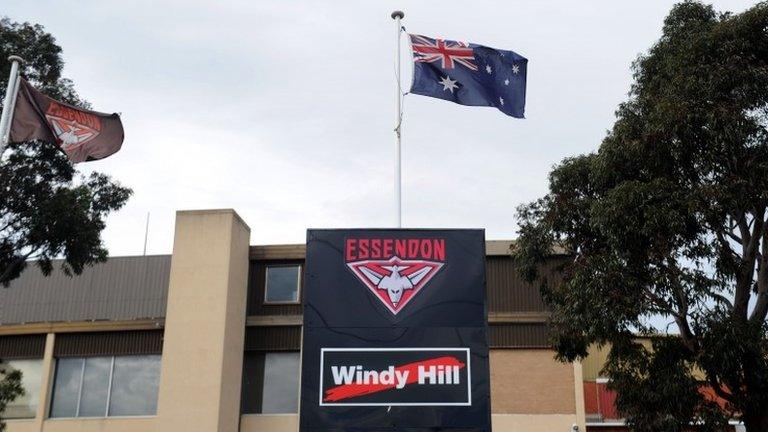Essendon: Australian rules players have doping appeal rejected by Swiss tribunal
- Published

Essendon CEO Xavier Campbell (left) and chairman Lindsay Tanner
More than 30 current and former players from Australian rules team Essendon had their appeal against doping bans thrown out by the Swiss Federal Tribunal.
The 34 players were banned for two years after the Court of Arbitration for Sport (Cas) upheld a World Anti-Doping Agency (Wada) appeal in January.
The players were injected with a banned performance-enhancing drug in 2012.
The SFT ruled that, as the players earlier accepted the ruling, they "had lost their right to challenge" it.
However, Cas said the SFT ruled it would have upheld the ban regardless of whether it was "properly challenged".
As some of the players accepted provisional suspensions in 2013, the bans were backdated, meaning most will be eligible to return for the 2017 Australian Football League season.
At the time, Essendon received a record A$2m (£1.2m) fine, were barred from end-of-season finals and had their coach and manager suspended.
The banned drug was peptide Thymosin Beta 4 (TB-4), which promotes muscle growth.
Cas said the programme was designed to "improve players' recovery from intense workouts and thereby allow them to become bigger and stronger".
Many of those involved have since left the sport, although 16 players remain in the AFL system.
Australian Sports Anti-Doping Authority (Asada) chief executive Ben McDevitt welcomed the Swiss court's decision.
"You cannot agree to the rules and then expect them to change if you don't like the outcome," he said.
"I am pleased that this matter is now finalised."
Jobe Watson, former Essendon captain and winner of the 2012 Brownlow Medal, returned to training in September.
The Brownlow Medal is the game's annual most valuable player award, and AFL chief executive Gillon McLachlan said the decision to award it to Watson could be reviewed.
- Attribution
- Published23 September 2016

- Published11 January 2016

- Attribution
- Published28 August 2013
